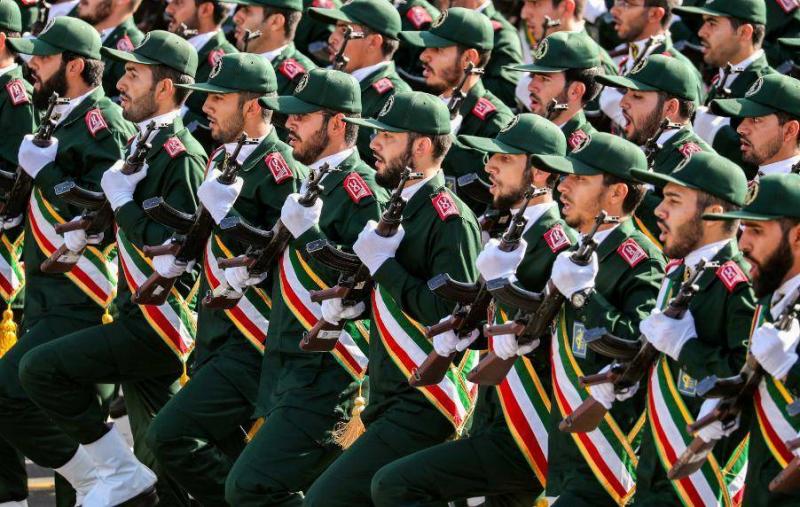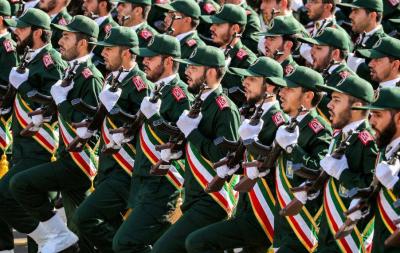After years of pressure, the Canadian government announced on Wednesday that it has designated the Iranian Revolutionary Guard as a terrorist organization, following the United States' lead, which placed the group on its terrorism list in 2019. Speaking to reporters in front of the House of Commons, Canadian Public Safety Minister Dominic LeBlanc stated that the government has received "strong and compelling evidence" warranting the inclusion of the Iranian Revolutionary Guard as a terrorist group under criminal law, effective June 19. Based on this decision, Canada can freeze the assets of individuals associated with the organization, pursue legal action against them, and ban all financial transactions. This decision comes amid tensions between the two countries, which have not maintained diplomatic relations since 2012. Canada has also banned 10,000 Iranian officials from entering its territory, including members of the Revolutionary Guard, according to reports. Iranians abroad and families of victims from the Ukrainian flight PS752, which was shot down by Iran shortly after taking off from Tehran in January 2020, killing all 176 passengers, including 85 Canadian citizens and permanent residents, have long urged Ottawa to classify the Revolutionary Guard as a "terrorist entity."
Already, Canada classifies the Quds Force, the Revolutionary Guard's foreign arm, as a terrorist organization. Former U.S. President Donald Trump had previously announced the inclusion of the "Iranian Islamic Revolutionary Guard" on the U.S. State Department’s list of foreign terrorist organizations. Previously, the "Revolutionary Guard" was classified by U.S. nuclear proliferation authorities under Executive Order 13382 in 2007, and again in relation to human rights violations alongside "Popular Mobilization Forces" (Basij) and "Law Enforcement Forces" under Executive Order 13553 in 2011. The U.S. State Department's "Fact Sheet" regarding the designation of foreign terrorist organizations indicated that the terrorist authorities classified the Quds Force as a "specially designated global terrorist entity" in 2007, and the Revolutionary Guard itself was designated a terrorist organization in 2017.
The Iranian Revolutionary Guard was established in 1979 by the founder of the Islamic Republic, Ruhollah Khomeini, intended to create an army of "believers" tasked solely with protecting the "values" and "ideology of the Islamic Revolution" from domestic and foreign threats. Over time, however, the Revolutionary Guard evolved into both a political and commercial force, tightening its grip within the country’s strongest factions and industries, including oil and gas, thus gaining significant influence over many political matters. A report by the Council on Foreign Relations, an American research organization, suggested that the individual most responsible for the Revolutionary Guard’s current standing was the late Iranian President Akbar Hashemi Rafsanjani. The report estimates the Ground Forces of the Iranian Revolutionary Guard to be between 100,000 and 125,000, with the Navy numbering around 20,000, and the Quds Force at 5,000. Additionally, it noted that the Basij militia, affiliated with the Revolutionary Guard, can mobilize hundreds of thousands of its members to "defend Iran against foreign invasion."
The Revolutionary Guard controls approximately 200,000 armed militants outside Iran, distributed across Iraq, Lebanon, Syria, Yemen, and the Palestinian territories, according to a report published by the U.S. Marine Corps. In this context, Iranian-American journalist and Georgetown University professor Tara Kangarlou stated that this entity is one of the most powerful branches of Iran's armed forces, both diverse and dense. This formidable entity, according to an article published by Kangarlou in Time magazine, reports directly to the country’s Supreme Leader, Ali Khamenei. The Basij, or "Organization of the Mobilization of the Oppressed," acts as the internal militia of the Guard and is a source of "deep concern and resentment among Iranian citizens," according to Kangarlou.
The Revolutionary Guard possesses naval, "airspace," and intelligence forces, with a presence in several regional countries through the "Quds Force," and a significant missile arsenal, recently augmented by a stockpile of domestically produced drones. Kangarlou noted that some members of the Revolutionary Guard are former convicts who join the forces to alleviate their penalties, while others are opportunists who continue to amass wealth through loyalty to a regime that enabled them to strike commercial and industrial oil deals, having a hand in many lucrative dealings within both the public and private sectors. However, the majority of the forces consist of youth who embrace a radical ideology, fully loyal to the country's Supreme Leader.
Iran directly or indirectly controls militias and groups under what is known as the "Axis of Resistance," a coalition of armed factions that includes Palestinian groups, Hezbollah in Lebanon, the Houthis in Yemen, and various armed groups in Iraq and Syria, capable of threatening regional and global security. Through these militias, Iran has succeeded in competing with traditional regional powers, as it "directly or indirectly" supports over 20 armed groups, most of which are designated as "terrorist" by the United States. The Revolutionary Guard established the Lebanese Hezbollah group in 1982 to combat Israeli forces that invaded southern Lebanon that year, and Hezbollah is widely regarded as more powerful than the Lebanese state. The group serves as a model for other Tehran-backed groups across the region and has provided advice or training to some of these organizations. The U.S. and some Gulf Arab allies classify the group as a terrorist organization, given its record of involvement in terrorist operations in Bahrain, Kuwait, and other countries.
Hezbollah has been launching semi-daily attacks on Israeli targets across the Lebanese-Israeli border since October 8, leading to the most intense exchanges of fire between the two adversaries since their large-scale war in 2006. In Iraq, Iranian-backed Shiite groups have emerged as active players after the 2003 U.S.-led invasion, which resulted in the ousting of Saddam Hussein. The number of fighters in these groups is estimated to be in the tens of thousands, and the "Islamic Resistance" in Iraq, composed of Shiite armed groups, began targeting U.S. forces in Iraq and Syria in October, claiming to respond to Israeli attacks on Palestinians and to resist the U.S. presence in Iraq and the region.
In Syria, sectarian militias from Iraq, Lebanon, Afghanistan, and Pakistan, backed by the Revolutionary Guard, fought alongside regime forces against the opposition, assisting in regaining control over most of the country. In Yemen, the Houthis, categorized by the U.S. as a "terrorist group," receive substantial support from the Iranian Revolutionary Guard in terms of arms, training, and weapon manufacturing. The Houthi movement announced its entry into the conflict on October 31 by launching drones and missiles towards Israel. In November, the Houthis expanded their role by attacking ships in the southern Red Sea, claiming to target vessels that belonged to or were headed to Israeli ports, although some targeted ships had no known ties to Israel.
According to the official U.S. Government website, the "Rewards for Justice" program has offered up to $15 million for information that would disrupt the financial mechanisms of the Islamic Revolutionary Guard Corps and all its various branches, including the Quds Force. The Guard funds numerous attacks and terrorist operations worldwide. The U.S. State Department claims that the Iranian Revolutionary Guard is "directly involved" in the killing of American citizens, taking hostages, and illegally detaining numerous Americans. According to the State Department, the Iranian regime is responsible for the deaths of at least 603 American soldiers in Iraq, alongside thousands of Iraqis killed by "Revolutionary Guard proxies." The U.S. Department of State offers rewards for information regarding revenue sources for the Revolutionary Guard or its Quds Force, including illicit financial schemes, front companies operating internationally on behalf of the Revolutionary Guard, individuals or entities assisting the Revolutionary Guard in evading U.S. and international sanctions, and financial institutions that conduct transactions with the Revolutionary Guard.




